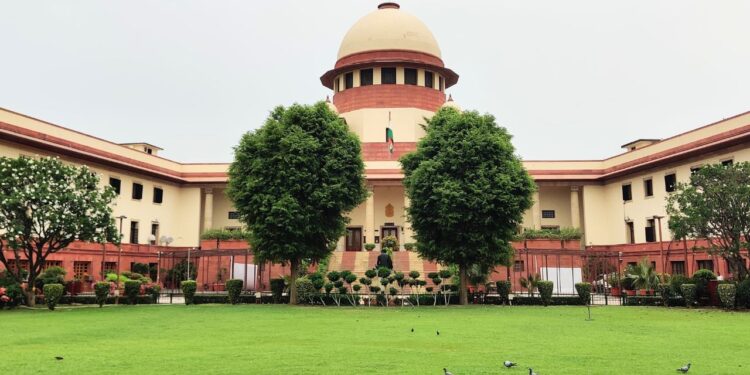The Supreme Court will decide whether a criminal case can be partially quashed based on a compromise between the complainant and some of the accused in the case (Puneet Kumar @ Punit Kumar v. State of Haryana and Others). This follows a plea challenging a ruling by the Punjab & Haryana High Court, which had stated that piecemeal compromises cannot be accepted in criminal cases to absolve some of the accused.
On December 18, a Bench of Justice Hrishikesh Roy and Justice SVN Bhatti issued notice on the matter and observed that various High Courts have taken conflicting views on whether a compromise with one or a few accused can lead to partial quashing of charges in a criminal case. The petitioners argued that this issue needs clarification, as different High Courts have approached it differently.
The Supreme Court also granted interim relief, allowing the trial to continue but excluding the petitioner from the proceedings for now. The petitioner had been implicated based on a statement made by a co-accused.
The High Court had previously ruled that partial settlements, or compromises between the complainant and some of the accused, conflict with Section 223 of the Code of Criminal Procedure (CrPC), which has since been replaced by Section 246 of the Bharatiya Nagarik Suraksha Sanhita (BNSS). The High Court highlighted that such settlements could complicate the trial process and result in conflicting situations.
In its November 12 judgment, the High Court pointed out several potential complications, such as the disempowerment of the complainant if they later dispute the settlement. The court also raised concerns that the remaining accused, not involved in the compromise, might allege that the trial was being used to settle personal vendettas. The High Court stressed that accepting partial compromises could hinder the public prosecutor from proving joint criminal liability, especially if the compromise involved the main accused.
Moreover, the High Court cautioned that such piecemeal settlements could ultimately undermine the integrity of the criminal justice system. The Court warned that it could harm both the victim and the overall process of criminal adjudication. Advocates Aman Bansal, Madiya Mushtaq, and Pranjal Kishore appeared on behalf of the appellant in the case.

















